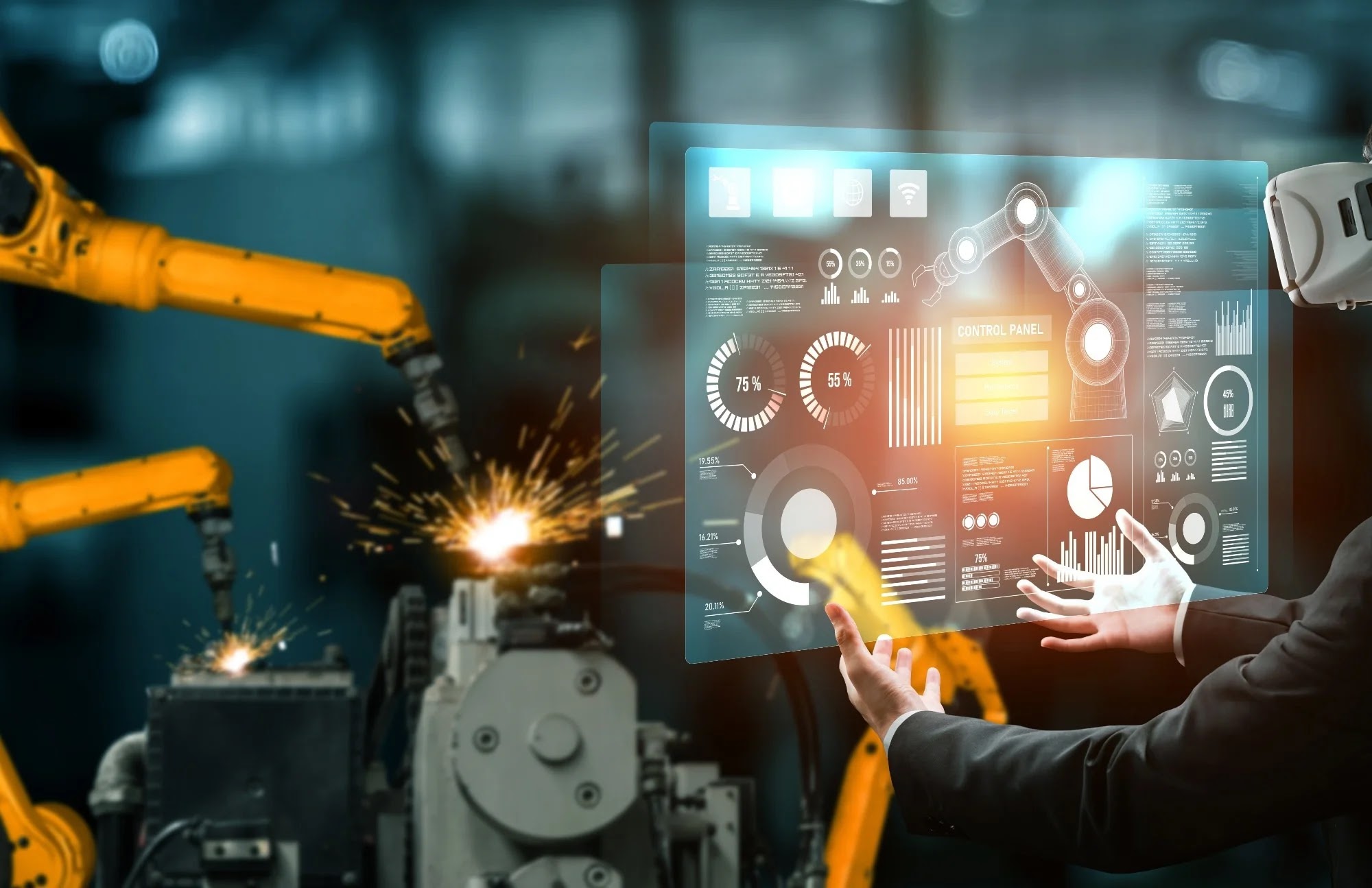Unleashing the Power of AI in Manufacturing

Artificial Intelligence (AI) in manufacturing refers to the
integration of intelligent systems and technologies to automate and optimize
various processes within the manufacturing industry. This encompasses a wide
range of applications, from predictive maintenance and quality control to
supply chain management and product customization.
AI in Manufacturing
AI in manufacturing involves the use of algorithms and
machine learning techniques to analyze large datasets, identify patterns, and
make data-driven decisions. By leveraging AI, manufacturers can enhance
efficiency, reduce costs, and improve overall productivity.
Applications of AI in Manufacturing
Predictive Maintenance: AI-powered predictive maintenance systems analyze
equipment data to predict potential failures and schedule maintenance
proactively, minimizing downtime and maximizing productivity.
Quality Control: AI algorithms can detect defects and anomalies in products
during the manufacturing process, ensuring that only high-quality products
reach the market.
Supply Chain Optimization: AI enables manufacturers to optimize inventory
management, demand forecasting, and logistics, improving supply chain
efficiency and reducing costs.
Product Customization: AI-driven production systems can customize products to meet
individual customer preferences, leading to higher customer satisfaction and
increased sales.
Adoption of AI in Manufacturing
The adoption of AI in manufacturing is on the rise, with an
increasing number of companies recognizing its potential to transform their
operations. From large-scale manufacturers to small and medium-sized
enterprises (SMEs), businesses are investing in AI technologies to gain a
competitive edge in the market.
Evolution of AI in Manufacturing
AI in manufacturing has evolved significantly over the years,
from basic rule-based systems to advanced machine learning algorithms and
neural networks. Today, AI-powered systems can analyze complex datasets,
optimize processes in real-time, and even make autonomous decisions without
human intervention.
Future Prospects of AI in Manufacturing
As AI technologies continue to advance, the future of
manufacturing looks promising. Smart factories equipped with AI-enabled systems
will become increasingly common, leading to greater efficiency, flexibility,
and agility in production processes. Moreover, AI-driven innovations such as
generative design and autonomous robotics will further revolutionize the
manufacturing industry, paving the way for a new era of innovation and growth.
Conclusion:
AI is poised to play a pivotal role in the future of
manufacturing, driving efficiency, innovation, and competitiveness across the
industry. By embracing AI technologies, manufacturers can unlock new
opportunities for growth and success in an increasingly digital and
interconnected world.
Just as AI transforms manufacturing processes, it is also reshaping software creation through vibe coding, where development flows are guided by natural language.
Alongside AI in manufacturing, the rise of Agentic AI shows how autonomous agents are redefining the future of software and industry together.
FAQs
What exactly is AI in manufacturing?
AI in manufacturing refers to the use of artificial
intelligence technologies to optimize various aspects of production processes,
including predictive maintenance, quality control, supply chain management, and
product customization.
How does AI improve efficiency in manufacturing?
AI improves efficiency in manufacturing by enabling
predictive maintenance to minimize downtime, optimizing production workflows
through automation, and enhancing quality control processes to ensure product
consistency and reliability.
Is AI adoption limited to large manufacturing companies?
No, AI adoption in manufacturing spans companies of all
sizes, from multinational corporations to small businesses. Many manufacturers
recognize the transformative potential of AI and are actively implementing AI
technologies to stay competitive.
What are some examples of AI applications in manufacturing?
Examples of AI applications in manufacturing include
predictive maintenance algorithms, AI-driven robotics and automation systems,
demand forecasting models, and generative design software for product
optimization.
How does AI contribute to sustainability in manufacturing?
AI contributes to sustainability in manufacturing by
optimizing resource utilization, reducing waste, and enabling more
energy-efficient production processes through predictive maintenance, process
optimization, and material selection algorithms.